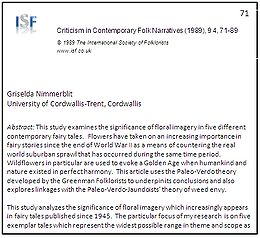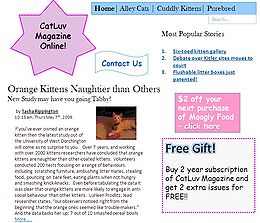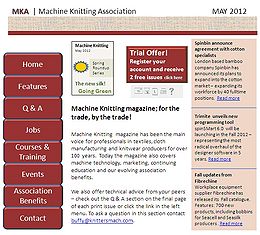Quick Reference
The following outlines the key differences between scholarly, popular and professional publications.
| Criteria |
Scholarly  |
Popular  |
Trade/Technical 
|
| Advertisements |
Few ads, usually for publication services in the discipline covered |
Many ads - typically for retail products and services. |
Will have advertisements which will generally be targeted to professionals in the field.
|
Appearance
|
Plain design, black and white graphics (print versions), containing charts, graphs, and tables. |
Slick design, glossy paper (print versions), with colour pictures, photographs, and illustrations. |
Slick design, glossy paper (print versions), with graphics, photos and illustrations.
|
| Audience |
Professors, researchers, college and university students |
General public |
Professionals in the field and possibly interested amateurs.
|
| Author |
Written by scholar within an academic field -
i.e., a current researcher at a university or research institute. |
Written by journalists who may lack discipline and/or subject expertise. |
Professionals in the field or journalist with specialist background
|
| Language |
University level, in the specialized vocabulary of the discipline covered.
No glossaries or list of defined terms - target audience will already be familiar with this vocabulary. |
Non technical, simple vocabulary accessible to the majority of readers. Online popular sources may hyperlink unfamiliar terms to dictionary defintions, Wikipedia entries etc. |
Specialist jargon/terminology of the field but likely not as technical as scholarly journals.
|
| Peer Reviewed/Refereed? |
Usually
Journal Articles: Experts in the field review articles in most scholarly journals. Submissions are not published if they do not pass the scrutiny of the reviewers.
Maybe
Scholarly books: Academic presses typically employ editorial boards to review the quality, accuracy and validity of manuscripts.
However, not all editorial boards are comprised of subject experts - check board members' affiliation/qualifications to determine if "peers" are part of the review process |
No
Only the magazine editor reviews submitted articles. |
No
May be reviewed by staff editors with experience in the field, but no formal peer-review process.
|
| Publisher |
Professional organizations, universities, research institutes, scholarly presses and scholarly units of commercial enterprises. |
Commercial enterprises. |
Professional society/association; commercial enterprises
|
| Purpose |
Report on original research, experimentation, methodology, and theory. Refute / support theories of other researchers in the field. |
Inform or entertain the reader, sell products, and/or promote a viewpoint. |
Report on the state of a particular trade or industry - news, trends, products etc. Focus is on information for practitioners in the field - continuing professional development
|
| Research Documentation |
Footnotes and bibliographies cite the author's research. |
Sources are rarely cited. |
May have footnotes or bibliographies but not essential practice.
|